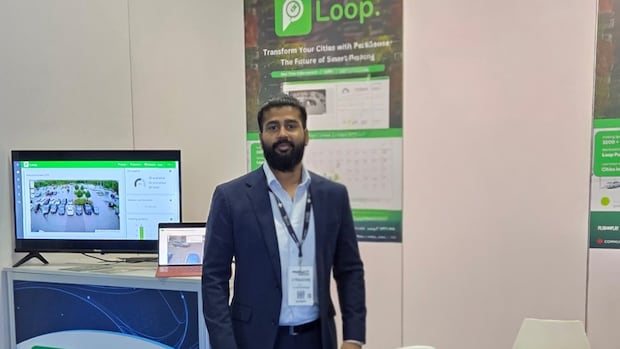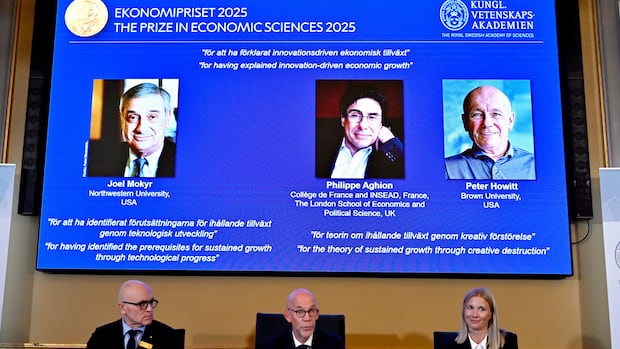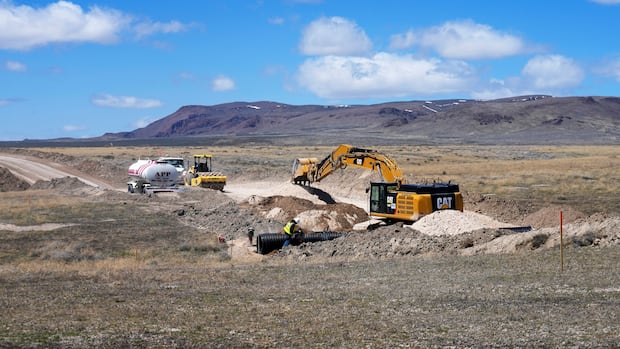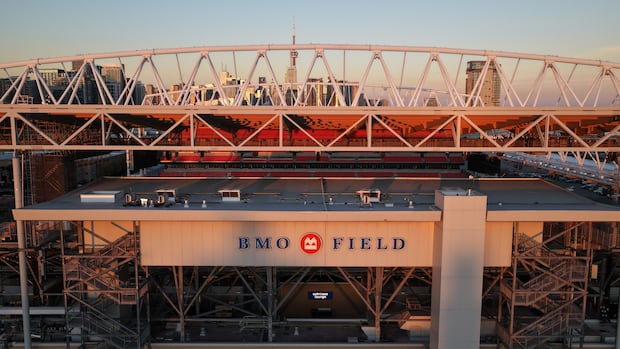After moving to Canada from India, Steeson Mathew has spent the past four years building AI-powered parking systems for Canadian cities.
He leads a startup called Loop Parking, supported by Hamilton’s Innovation Factory. He said he has contracts in Newmarket and Vaughan, interest from a major telecom company and has represented Canada at a trade mission in Dubai.
But Mathew is still waiting for one thing to truly allow his life here to prosper: permanent residency (PR).
He’s one of thousands of immigrant entrepreneurs caught in mounting delays under Canada’s Start-up Visa (SUV) program — a pathway once promoted as a fast-track to citizenship for immigrant entrepreneurs with “skills and potential.”
Immigration, Refugees and Citizenship Canada (IRCC) told CBC News as of Friday, more than 42,000 applications are currently in the system. Of those, 16,370 have been in that system for at least two years, IRCC said.
“The technology is ready,” Mathew said, referring to his parking solution. “But without [permanent residency, or PR], we can’t take that next leap.”
A petition circulating online, with more than 400 signatures as of Friday, is urging the federal government to act.
The petition was launched by a visa applicant based in Toronto. It calls on the IRCC to expedite long-pending PR applications, implement case escalation options for entrepreneurs with proven business contributions, and provide transparency around timelines.
‘Banks just won’t lend to someone like me’
Launched in 2013 as a pilot and made permanent in 2018, the SUV program aims to attract people from other countries to build innovative, job-creating businesses in Canada.
But for many entrepreneurs the reality has fallen far short of the promise.
Two Hamilton-based co-founders of a food app share in Mathew’s frustration. Allison Le and Ryo Wu co-founded COOCO, an AI platform that helps households reduce food waste. They chose Canada over the U.S. and Australia because of the SUV program’s fast-tracked PR timeline, they said.
When they applied in October 2022, the IRCC website indicated an 18-month processing time. That timeframe has come and gone. For them, the delays have reshaped everything — from their business plans to their financial future.
“We based our initial funding plan on that 18-month promise,” Wu said. “Now our funds have reached their limit — and we can’t raise more because we’re still temporary residents.”
Several entrepreneurs shared with CBC News that investors won’t commit without permanent status. Accessing loans from Canadian banks has also proven difficult.
Mathew applied for the SUV in August 2021 and has faced similar barriers. Despite signed city contracts, he says being a temporary resident blocks access to both venture capital and credit.
“I’m the largest shareholder in my company, and I still can’t get a line of credit,” he said. “The banks just won’t lend to someone like me.”
Some public grants and accelerators also require PR or citizenship, excluding both Loop Parking and COOCO from further support. Wu said they’ve had to rely on a mostly overseas team and delay hiring in Canada.
Mathew says his company is ready to scale — they’ve processed 18 million real-world images of parking spots across Ontario and are being marketed nationwide — but he’s holding back. He also avoided pursuing other pathways to permanent residency because the SUV was framed as a fast track.
‘It’s about stability’
While the companies stay in limbo, the personal cost is mounting.
Wu and Le say the emotional strain of uncertain status is wearing. Their work permits expire in early 2026, and with no PR updates, they’re preparing for yet another renewal.
“It’s not just about the business,” Wu said. “It’s about stability — knowing you can plan your life here.”
For Mathew, the toll has been steeper.
He hasn’t seen his family back home in six years, missing his brother’s wedding due to travel risk. His wife, whose visa took three years to approve, joined him in Canada only recently. They’ve postponed starting a family.
“We got married six years ago, and it still feels like we’re waiting for life to begin,” he said.
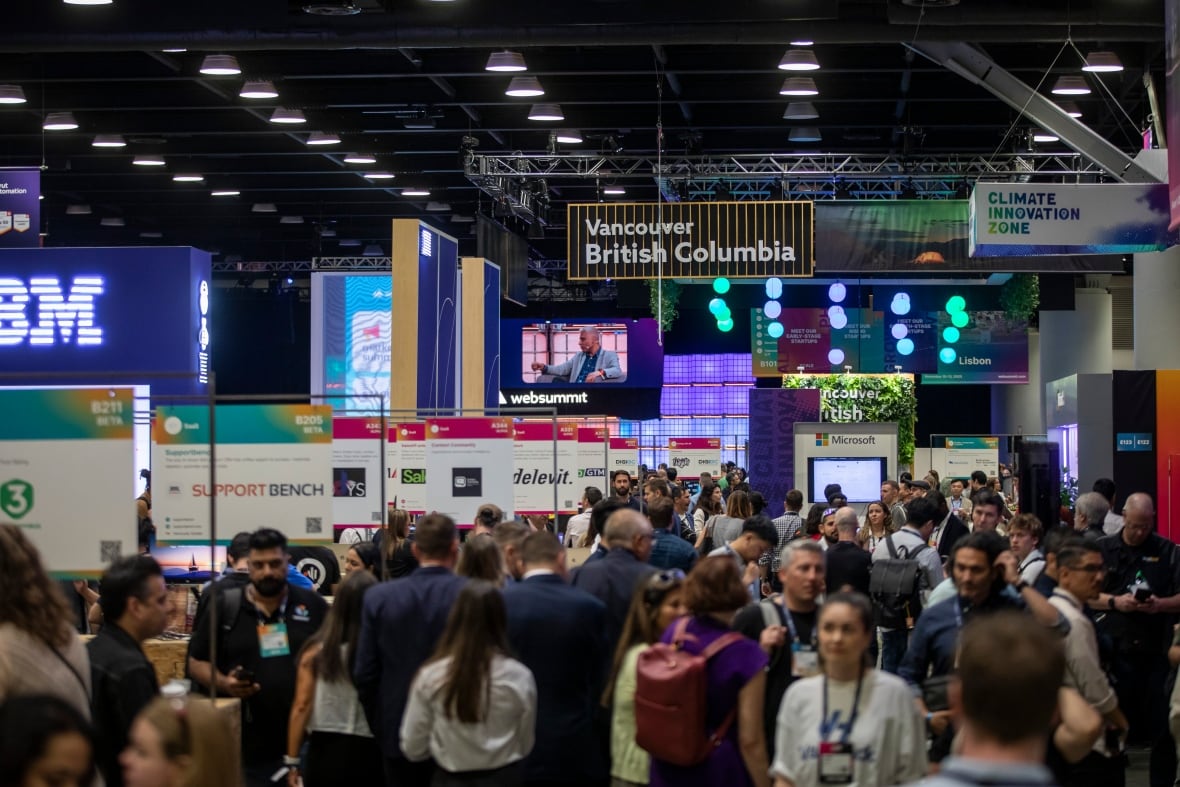
To cut costs, Mathew moved from Kitchener-Waterloo to Hanover, Ont., more than three hours from Toronto, and now shares housing with his brother. He still drives to the city a dozen times a month for meetings.
“The only time I’ve left the country was to represent Canada,” he said. “That’s the irony.”
Program changed to address backlog
The SUV program offers PR to immigrant entrepreneurs who are accepted into a Canadian business incubator, angel investor group or venture capital fund — known as designated organizations.
These organizations must endorse the startup. In theory, once accepted, founders receive a work permit which allows them to live and work in Canada. They can then apply for PR under the SUV while building their business in Canada.
“The number of SUV applications far outnumbers the number of planned admissions spaces, which has led to a backlog and longer wait times,” IRCC said in an emailed statement.
As of July, official processing times stand at 51 months, or more than four years, according to the IRCC website.
Wu says when they follow up, they’re told only that their file is “within the timeline.”
“It’s a moving target,” Mathew said. “When I applied, the site said 18 to 21 months. Then it was 33, then 40, now 51. No real updates.”
Even when IRCC did contact him — in 2024, requesting updated documents — Mathew said they didn’t ask about his company’s progress. “They just wanted to know if my paperwork was still valid.”
To address the backlog, the government has made policy changes.
In June 2023, then-minister Sean Fraser introduced three-year open work permits for SUV applicants. “It lets you stay,” Mathew said, “But it doesn’t let you grow.”
In April 2024, Minister Marc Miller capped each designated organization — the firms and incubators that endorse SUV applicants — at 10 startups per year and lowered the program’s annual PR target to 2,000 for 2025.
IRCC says these steps are meant to “control intake” and “mitigate wait times.” It also introduced “prioritization criteria” for faster processing. But Mathew says the new priority list unfairly disadvantages founders already in the system.
Despite the setbacks, Mathew and the COOCO team say they’re still committed to building their businesses in Canada. They’ve created internships, jobs, and partnerships — all while waiting.
“We’re not asking for shortcuts,” said Wu. “Just fairness — a clear, transparent process.”
“These delays make Canada a less attractive destination for international founders,” said Mathew. “Canada gave us an opportunity. Now we just need it to follow through.”


